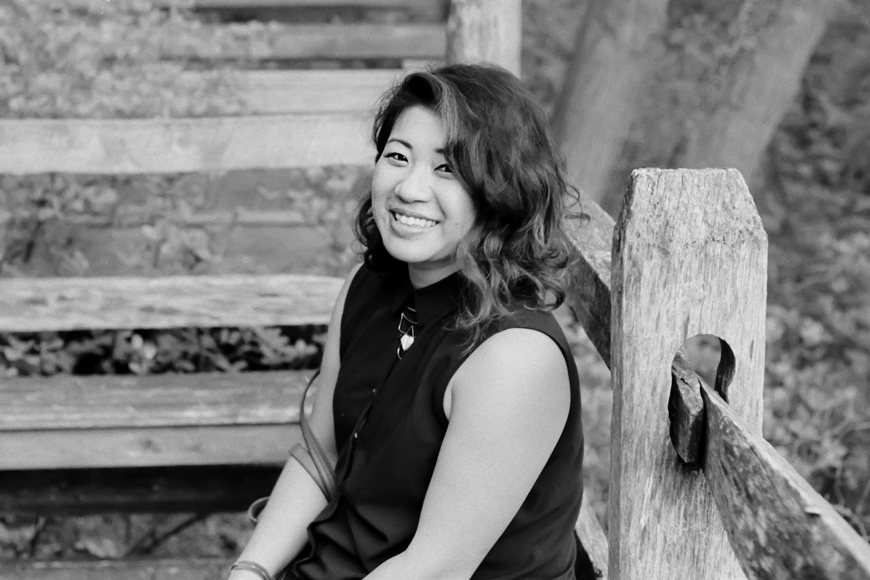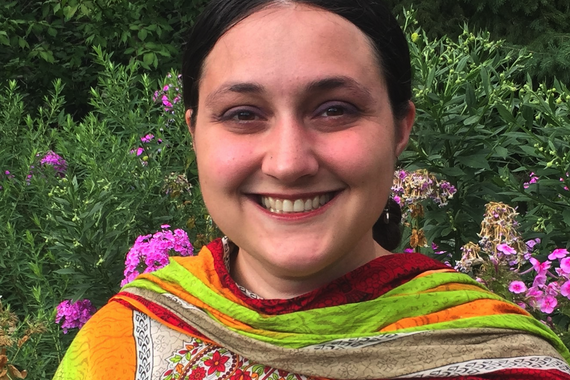Diversity & Disability in the 17th Century
Curiosity and challenge are what push Assistant Professor Jennifer Row to new discoveries. Row enjoys taking up new challenges, such as running marathons and learning aerial dance. (“My back-up plan is to join a circus,” she quips.) Intrigued by unique topics and activities, Row channels her love for discovery into her research.
Coming to the U from Boston, Row holds a BA in women’s, gender, and sexuality studies and comparative literature from Yale University and went on to earn her masters and PhD in comparative literature from Cornell University. Merging her undergraduate and graduate studies, Row analyzes how we understand the history of sexuality in French literature. Most recently, she has started a new research project that focuses on critical disabilities in seventeenth-century France.
When Knowledge Comes Naturally
French has played a prominent role in Row’s life from an early age. Her cousins were enrolled in a French immersion school in Canada, which prompted her to learn French herself. She started taking classes in junior high school, which had her in total language immersion. “I enjoyed the activeness of it, which is a part of my personality,” Row says.
Row took a graduate seminar during her sophomore year at Yale to fulfill her major requirements in gender studies, but it also helped prepare her for potential study abroad trips, as the course was in French. Although the class was difficult, she enjoyed the challenge and was soon able to write seminar papers entirely in French, which prepared her to take classes alongside French university students in Paris, at the Ecole Normale Supérieure and the Centre d’Études féminines (Université de Paris-VIII).
Additionally, between her undergraduate and graduate career, Row taught French students at the prestigious Lycée Louis-le-Grand and the Université de Paris-IV La Sorbonne, each for a year, in Paris as a native English-speaking language assistant. “I kept on being presented with opportunities to go to France and study,” Row explains. “I guess French kind of picked me.”
From the History of Sexuality to Critical Disability Studies
Row has transformed her dissertation into a book called Queer Velocities, which is currently under consideration by Northwestern University Press. “I’ve always been interested in how we understand the history of sexuality,” she explains. “Especially in time periods before there were fixed identity categories.” She took canonical tragedies and examined the queer elements that the characters displayed. For example, she examined the French play Polyeucte by Pierre Corneille. The main character decides to convert to Christianity, which is a violation against the Roman Empire (the play is set in third-century Armenia). Row points out that the other characters talk about his conversion as if he were coming out.
Row recently completed a National Endowment for the Humanities (NEH) seminar at Gallaudet University (a historic school for the deaf) called Global Histories of Disabilities, which sparked her curiosity for a new research project. It focuses on critical disability studies, which approaches the topic by addressing the structures and processes in which some bodies are called disabled. “I’m interested in thinking about the seventeenth century as the moment when ableism, the belief that an able body is inherently better than a disabled body, gets developed,” she explains. She envisions this research project taking her from seventeenth-century France to the French Atlantic colonies, while thinking about different forces that shape an able body, including dance, theater, and fairy tales.
Row’s research fuels the way she teaches her classes. During her undergraduate and graduate career, she had a fixed sense of what participation, student success, and a strong research paper looked like. Since thinking deeply about disability studies, Row has shifted her approach to ensure her assignments are accessible to all different kinds of learning styles and capabilities. “I’m constantly revising those ideas,” she explains, “especially for people with more invisible disabilities like mental illness or neurodiversity.”
A Love for French & Research
Through all of her research, it comes back to Row’s first passion: French. She loves teaching French because it’s exciting to see students discover how to express things in a new language. Row’s first semester at the U has shown her the unlimited possibilities of what subjects she could explore next: “I love how everyone here is intellectually curious, and I find inspiration from different fields and adjacent departments that I would never have expected.”
This story was written by an undergraduate student in CLAgency. Meet the team.



